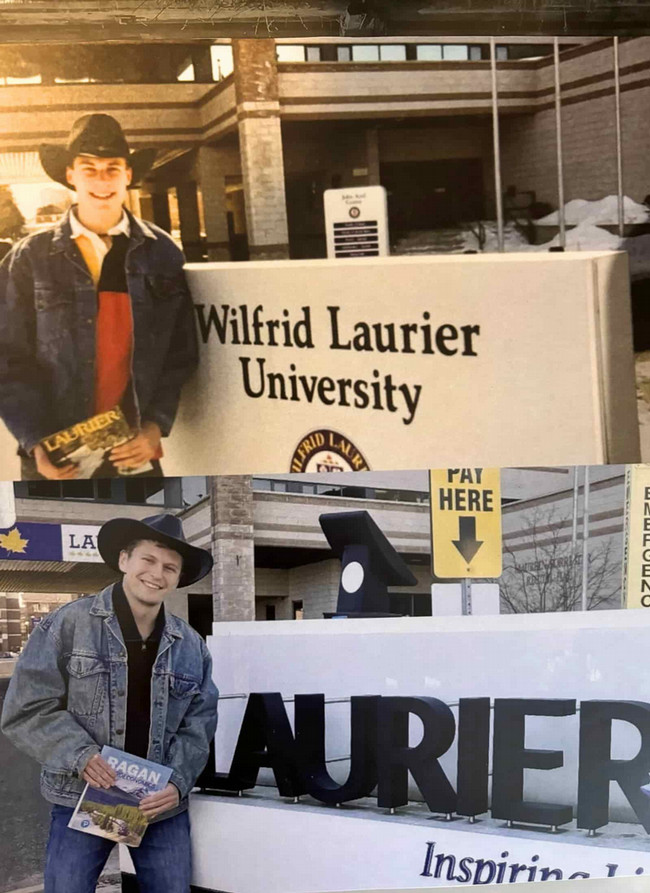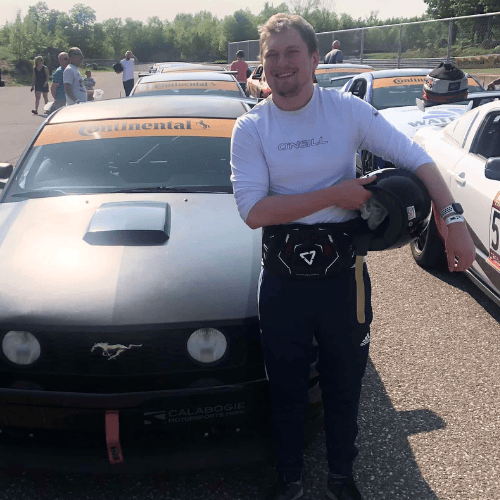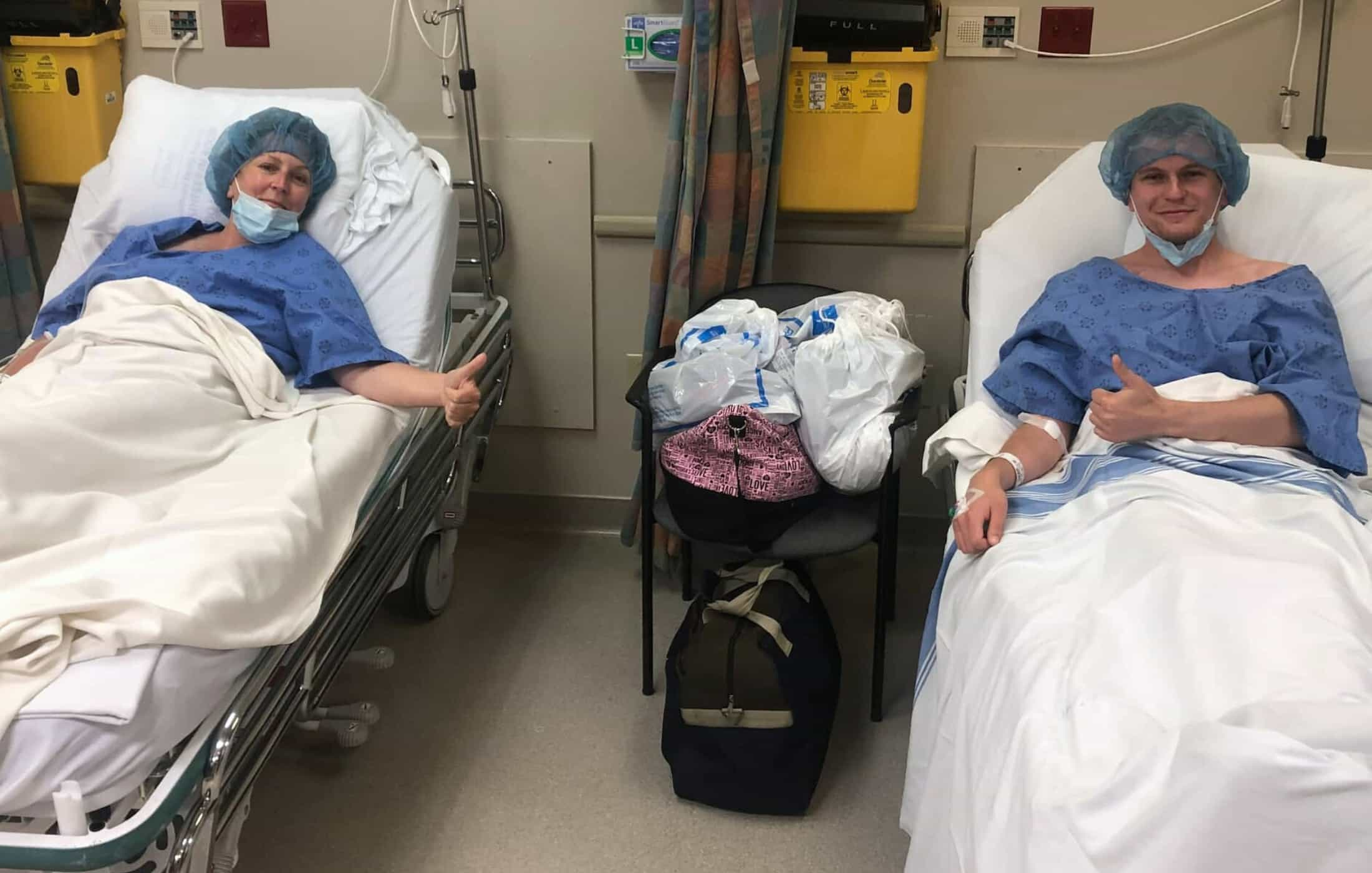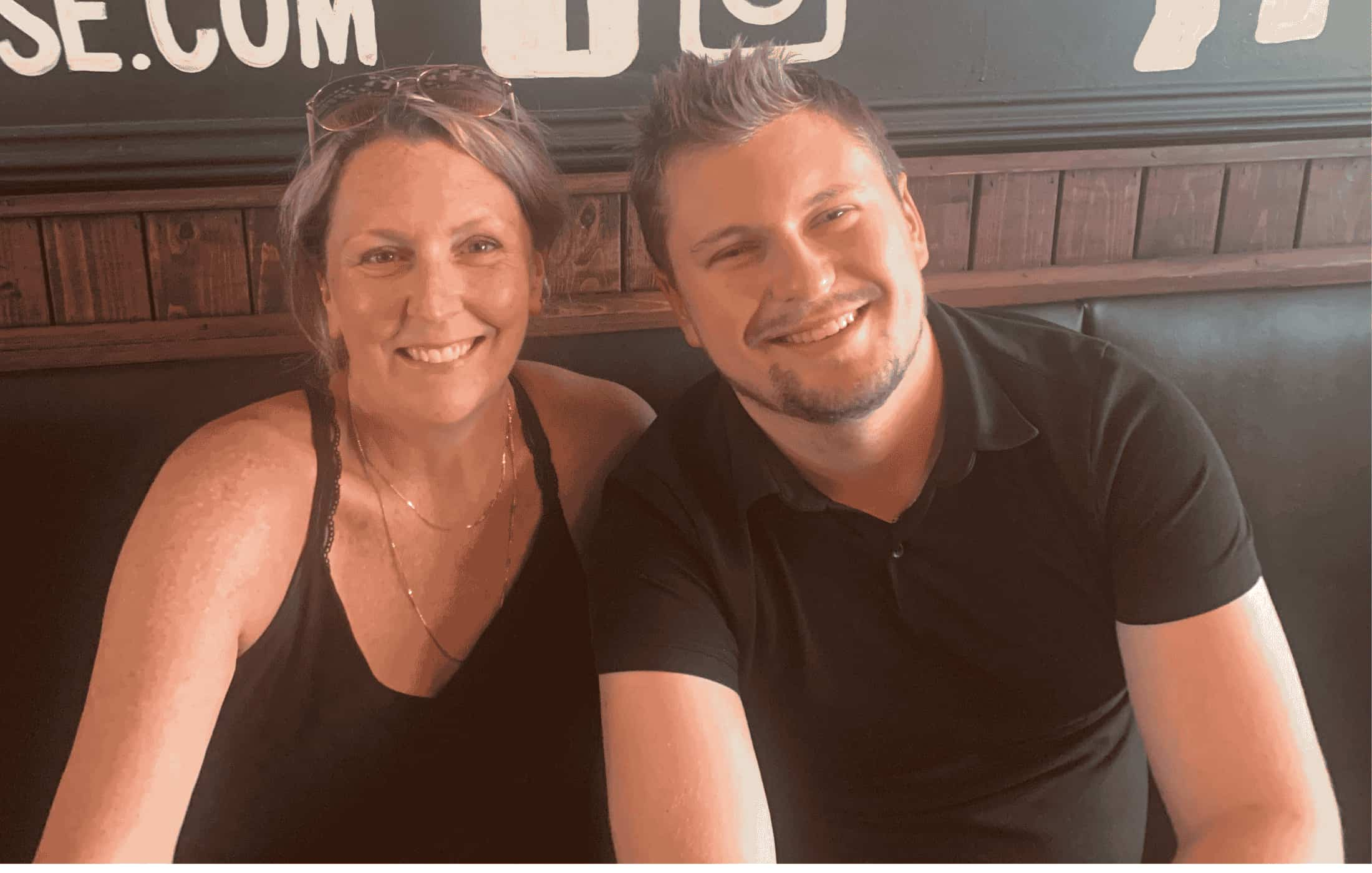Search for academic programs, residence, tours and events and more.
Oct. 15, 2024
For Economics graduand Max van der Linde, crossing the convocation stage at Wilfrid Laurier University will be more than a celebration of academic achievement — it will be a celebration of tenacity, family support and survival.
Max was diagnosed with end-stage kidney failure shortly after he arrived at the emergency department at Grand River Hospital in Kitchener on Nov. 12, 2021. He had been struggling with headaches and nausea and called his family doctor in his hometown of Kemptville, south of Ottawa, for advice.
“My doctor suggested I head to the emergency room to get checked out, just to be safe,” says Max. “I am so glad I took her advice.”
Kidneys filter waste from the blood, regulate body fluids, control blood pressure and produce red blood cells. Typical risk factors for end-stage kidney failure include diabetes, coronary artery disease and advanced age — none of which applied to Max, a healthy 19-year-old with no family history of the disease.
Alone at the hospital, Max called his parents, Lynn and Hendrik van der Linde, at their family home to share his diagnosis.
“We were in the car immediately and on our way to Waterloo,” says Lynn (BA ’97). “That was a horrible drive to make as a parent.”
Doctors at Grand River Hospital informed Lynn and Hendrik that Max would need a kidney transplant and, as his parents, they should begin testing to determine if either qualified as a potential donor. Max’s treatment plan was also discussed, with doctors assuming he would opt to receive care in Kemptville.
“Max was adamant about staying in Waterloo to finish the semester and the academic year,” says Lynn. “Being a student was a big part of his identity — he made friends at Laurier and enjoyed his classes — so we supported his decision to start treatment while continuing his studies in Waterloo.”
During the next six months, the van der Lindes rented apartments in the university district to be closer to Max and drive him to and from dialysis appointments at the hospital three times a week. Lynn and Hendrik alternated between week-long stays in Waterloo to support Max while ensuring their younger son was cared for at home.
Returning to Waterloo and living in basement apartments was reminiscent of Lynn and Hendrik’s Laurier experiences, which began 31 years ago.
Like their son, they each moved to Waterloo from the Ottawa area to study Economics at Laurier. Strangers in the beginning, Lynn and Hendrik’s paths would eventually cross in the classrooms and hallways of the Schlegel and Peters buildings. They both volunteered with Laurier Foot Patrol, often working the same shifts, providing a safe way home for students after late-night study sessions or socializing at Wilf’s. Both graduated from the Economics program in 1997.
“When we met, I certainly didn’t think we would have a child who would eventually come to Laurier,” says Lynn. “But here we are — it must have been fate.”

Max van der Linde, bottom, recreates a 1993 photo of his father Hendrik.
Lynn and Hendrik brought Max and his younger brother Jet to Laurier Homecoming in 2017 to celebrate the Class of 1997’s 20th anniversary.
“That was a great time,” says Max. “I knew then that I wanted to come to Laurier.”
Max began hemodialysis Dec. 1, 2021. His busy schedule as an Economics student was now peppered with five-hour long treatments three times a week. During hemodialysis, blood is pumped through an external filter, known as a dialyzer, to remove toxins before being returned to the body. Side effects of hemodialysis can vary. For Max, they included weight loss, chills and fatigue.
“Dialysis does take a toll on your body,” says Max. “I was cold a lot and felt weak and tired. While it helped in the interim, dialysis isn’t meant for long-term use.”
Max attended virtual classes, completed coursework and studied for final exams during his hemodialysis treatments, which provided him with about two days of freedom before he needed to return to the dialysis unit for treatment.
“Staying a student was really important to me because it gave me something other than my situation to focus on during dialysis,” says Max. “Looking back, I am glad I stayed the course.”
Outside of classes and appointments, Max continued to prioritize his health, adhering to a special diet as he prepared for a transplant. During this time, the van der Lindes focused on the health and well-being of their family while looking ahead to a positive outcome.
“This experience was a testament to our love and commitment to Max and each other,” says Lynn. “We really relied on each other during this time, and I am proud that we made it through.”
After thorough patient workups, doctors determined that a kidney from Lynn would be the best match for Max. Determined to finish the 2021/22 academic year, Max asked that the transplant take place after he finished his winter 2022 exams in late April.
“The transplant team was really impressed with Max’s commitment to school,” says Lynn. “Here’s a young man trying to make the most out of a complex and scary situation. By planning it out this way, Max had the best chance to be as successful as possible with school and healing after surgery.”
On May 11, 2022, at London Health Sciences Centre in London, Ontario, Max received the life-saving gift of a kidney from his mother. The near-simultaneous procedures unfolded seamlessly without complications.

“I’ve learned that you never know what kind of curveballs life can throw at you, so it's important to enjoy the here and now.”
Max van der Linde (BA '24)
Max and Lynn recovered well from surgery and could visit each other from a distance, as COVID-19 protocols remained in place in healthcare settings. The addition of a kidney was an “instant miracle” for Max as he regained energy, an appetite and a healthy appearance. A few days after surgery, Max’s creatine levels — an indicator of kidney function — returned to normal. By mid-summer, he resumed the typical social activities of a healthy 19-year-old.
“It was such a breath of fresh air to feel normal again,” says Max. “It’s definitely a good feeling.”
A health scare often inspires people to live life to the fullest and not postpone experiences that bring joy. Since regaining his health, Max started checking off items from a bucket list he created during an early dialysis session. First on the list included racing at Calabogie Motorsports Park, where he reached top speeds of 210km/h behind the wheel of Ford Mustangs and Porsche 911s. The van der Lindes also embarked on family vacations across Canada and Europe.
“I’ve learned that you never know what kind of curveballs life can throw at you, so it’s important to enjoy the here and now,” says Max.
To help others living with kidney disease, Max has joined the Transplant Ambassador Program (TAP) with Kidney Alliance Canada, a patient-led volunteer organization that connects newly diagnosed patients with support, resources and a community of living donors and transplant recipients.

Lynn and Max van der Linde recovering after surgery.
As a TAP Ambassador, Max provides peer mentorship to young patients through email, text and phone calls, answering questions about kidney disease, hemodialysis or transplants from personal experience.
“I think it’s important for young people experiencing kidney disease to connect with someone their age who has been in their shoes,” says Max. “I want them to know I have been exactly where they are and it’s going to be okay.”
Lynn is also a member of the board of directors for the Kidney Patient and Donor Alliance of Canada, which oversees the Transplant Ambassador Program and other resources to help patients and donors navigate transplant options for patients prioritizing transplants over dialysis.
Convocation will officially close the chapter on Max’s undergraduate student experience, but the will and determination he demonstrated to obtain his degree remains front and centre for his parents.
“Max undertook a massive feat and succeeded despite everything,” says Lynn. “He has managed fabulously and continues to do so. We are beyond proud of him and so excited to see what unfolds for him next.”

Lynn and Max van der Linde.